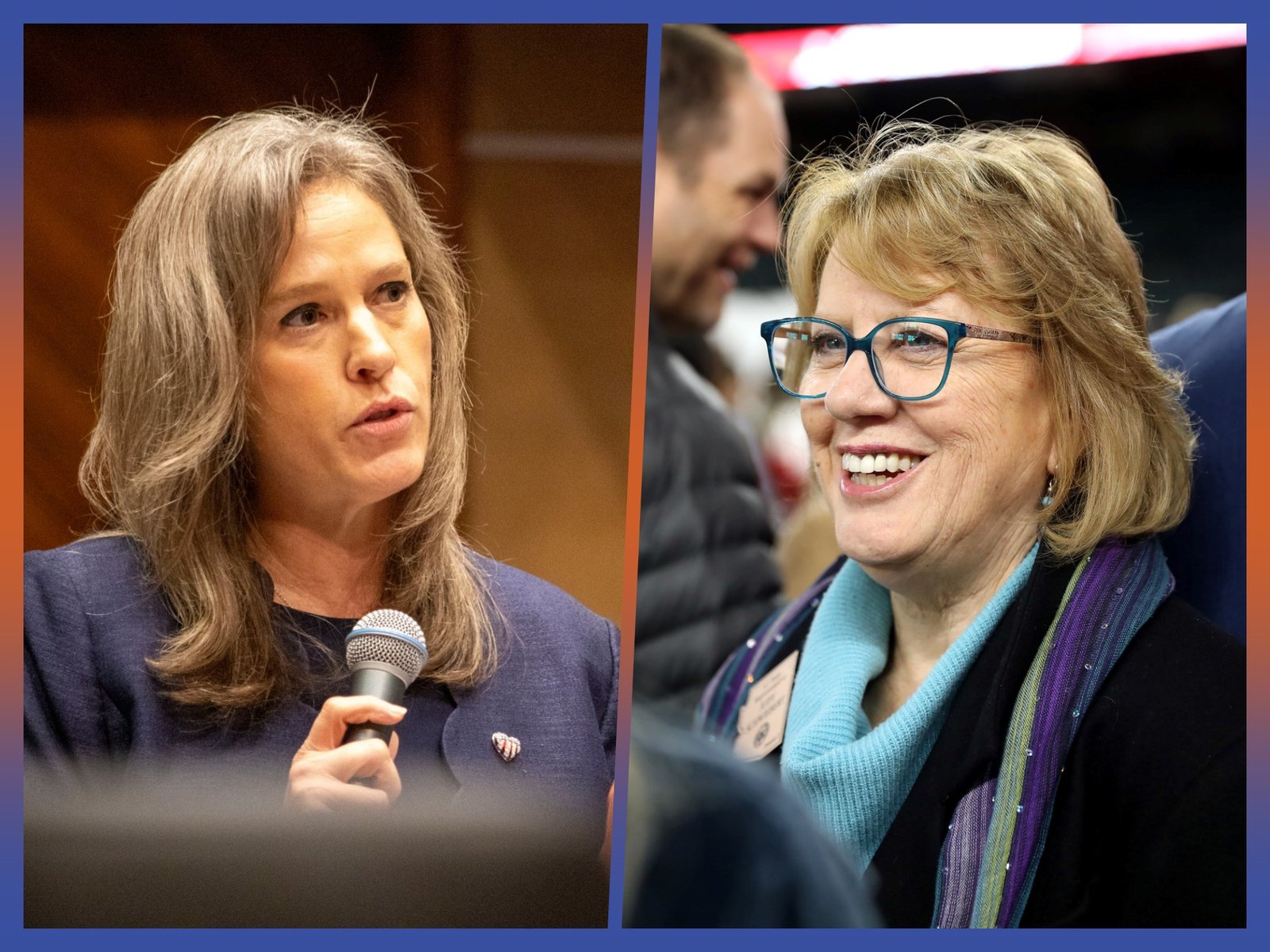Election 2024
Bolick vs. Schwiebert: A Tense Battle for North Phoenix Senate Seat that Could Shift Arizona’s Power Dynamics

North Phoenix voters are greeted by Rep. Judy Schwiebert as she campaigns for a state Senate seat. Conversations often revolve around education and its impact on Arizona’s economic landscape.
Schwiebert’s opening statement is pointed: “The Arizona Legislature has put our state 51st in the nation regarding funding and teacher salaries — and that’s a disaster not just for our state, but for our whole economy.” A former public school teacher, her transition to politics was fueled by witnessing a colleague secure a higher salary out of state.
Her campaign is crucial for determining control of the state legislature this November. She represents Legislative District 2, identified as one of five districts deemed highly competitive by the Arizona Independent Redistricting Commission. This district sees registered Republicans slightly outnumbering Democrats, but nearly equal numbers of politically unaffiliated voters, making it a pivotal battleground.
Schwiebert is part of a Democratic push to regain legislative control, a feat not achieved since Republicans took over in the mid-1960s. Her race against Republican Shawnna Bolick, appointed to the Senate in 2023, is tightly contested. Notably, funding plays a critical role; progressive groups have channeled over $8.5 million into Arizona races, with Schwiebert’s campaign amassing around $500,000 compared to Bolick’s $368,000.
Voters face stark policy contrasts. Elected to the Arizona House of Representatives in 2020, Schwiebert has championed public education. However, her proposals have often stalled amid a partisan legislature. She emphasizes education as her central campaign issue, stating, “The issue that I’m working to close the deal on is education.”
This year, she spearheaded Governor Katie Hobbs’ Prop. 123 replacement plan, which ensures $300 million in annual K-12 funding. As the original Prop. 123 set to expire, lawmakers struggle to find common ground on future funding. Disagreements between parties illustrate divergent priorities — Republicans favor maintaining existing funding rates, while Democrats seek to increase it and broaden eligibility for pay raises.
Bolick, a staunch advocate for school vouchers, emphasizes her conservative credentials. Her campaign strategy includes highlighting border security, a concern resonating with many voters. Although she did not respond to interview requests, her campaign ads underline her commitment to preserving private school vouchers and her focus on immigration issues.
Bolick has a controversial history marked by election denialism. Following the 2020 elections, she proposed legislation allowing the legislature to override election results. Her involvement in election disputes has drawn significant scrutiny, especially after the costly 2021 audit failed to substantiate claims of fraud.
Last year, Bolick was appointed to the Senate and has maintained her controversial stances, co-sponsoring measures that would restrict voting rights under the guise of ensuring election integrity. Critics argue her policies are based on false narratives, and studies indicate voter fraud is exceedingly rare.
Schwiebert counters Bolick’s claims on border security by emphasizing a collaborative approach and funding for local law enforcement rather than punitive measures. Meanwhile, abortion rights emerge as a contentious subject, with Prop. 139, which would enshrine reproductive rights in the state constitution, on the ballot. Bolick had a prominent role in repealing an antiquated abortion ban but continues to support rigid anti-abortion measures.
Bolick recently broke from her party during a contentious vote to repeal the 1864 law criminalizing most abortions, citing personal experience to explain her stance. However, this single vote raises questions about her overall position on reproductive rights, which Schwiebert critiques as insufficient due to her broader voting record.
Another controversial proposition backed by Bolick, which would grant lifetime appointments to state judges, has drawn criticism for potential conflict of interest, especially as her husband currently sits on the Supreme Court.
Both candidates recognize the significance of the LD2 race. Bolick’s campaign focuses on combating out-of-state funding for Democrats and emphasizes action on border security. Conversely, Schwiebert calls attention to proposals that died in committee due to the Republican majority. “If we can win this seat we can at least have parity,” she stated, referring to potential changes in legislative dynamics.


















